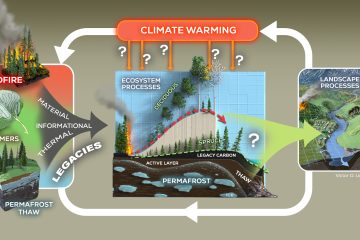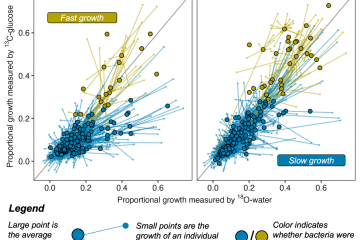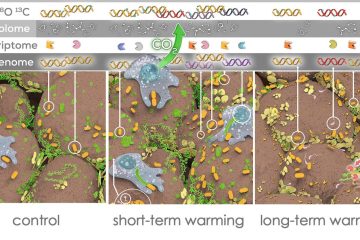Wildfire reduces carbon dioxide efflux and increases methane uptake in ponderosa pine forest soils of the southwestern USA
Severe wildfire may cause long-term changes in the soil-atmosphere exchange of carbon dioxide and methane, two gases known to force atmospheric warming. We examined the effect of a severe wildfire 10 years after burning to determine decadal-scale changes in soil gas fluxes following fire, and explored mechanisms responsible for these dynamics. We compared soil carbon dioxide efflux, methane uptake, soil temperature, soil water content, soil O horizon mass, fine root mass, and microbial biomass between a burned site and an unburned site that had similar stand conditions to the burned site before the fire. Compared to the unburned site, soil carbon dioxide efflux was 40% lower and methane uptake was 49% higher at the burned site over the 427-day measurement period. Soil O horizon mass, microbial biomass, fine root mass, and surface soil water content were lower at the burned site than the unburned site, but soil temperature was higher. A regression model showed soil carbon dioxide efflux was more sensitive to changes in soil temperature at the burned site than the unburned site. The relative importance of methane uptake to carbon dioxide efflux was higher at the burned site than the unburned site, but methane uptake compensated for only 1.5% of the warming potential of soil carbon dioxide efflux at the burned site. Our results suggest there was less carbon available at the burned site for respiration by plants and microbes, and the loss of the soil O horizon increased methane uptake in soil at the burned site.


